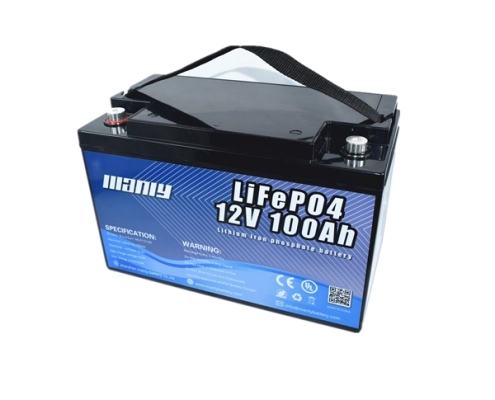In today’s fast-paced world, we rely heavily on our electronic devices to stay connected, be productive, and entertain ourselves. Whether it’s our smartphones, laptops, or tablets, these devices have become an essential part of our lives. However, the biggest challenge we face is ensuring that our devices have enough power to keep up with our demanding lifestyles. This is where battery technology comes into play, and one of the most promising advancements in recent years is the 100Ah lithium battery technology.
What is 100Ah Lithium Battery Technology?
Before we dive into the pros and cons of 100Ah lithium battery technology, let’s first understand what it is. A 100Ah lithium battery is a type of rechargeable battery that has a capacity of 100 ampere-hours (Ah). This means that it can deliver a continuous current of 100 amperes for one hour, or 1 ampere for 100 hours. Lithium batteries are known for their high energy density, which allows them to store more energy in a compact and lightweight package compared to other battery technologies.
The Pros of 100Ah Lithium Battery Technology
- High Energy Density: One of the biggest advantages of 100Ah lithium battery technology is its high energy density. This means that it can store more energy per unit volume or weight compared to other battery technologies. As a result, devices powered by 100Ah lithium batteries can last longer on a single charge, making them ideal for portable electronics.
- Fast Charging: Another benefit of 100Ah lithium battery technology is its fast charging capability. Lithium batteries can be charged at a much faster rate compared to other battery technologies, allowing users to quickly top up their devices and get back to using them. This is especially useful for people on the go who don’t have a lot of time to wait for their devices to charge.
- Long Lifespan: 100Ah lithium batteries are known for their long lifespan. They can withstand hundreds, if not thousands, of charge cycles without significant degradation in performance. This means that even after years of use, the battery will still be able to hold a significant amount of its original capacity. This is particularly important for devices that are designed to last for a long time, such as electric vehicles and solar energy storage systems.
- Environmental Friendliness: Compared to traditional battery technologies, 100Ah lithium battery technology is more environmentally friendly. Lithium batteries don’t contain toxic materials like lead or cadmium, which are commonly found in other types of batteries. Additionally, lithium batteries can be recycled, further reducing their impact on the environment.
The Cons of 100Ah Lithium Battery Technology
- High Cost: One of the main drawbacks of 100Ah lithium battery technology is its high cost. Lithium batteries are still relatively expensive compared to other battery technologies, making them less accessible for some consumers. However, as technology advances and economies of scale kick in, the cost of lithium batteries is expected to decrease in the future.
- Risk of Thermal Runaway: Although rare, lithium batteries have a small risk of thermal runaway, which is a rapid increase in temperature and pressure that can lead to an explosion or fire. This risk is mitigated through the use of safety features such as built-in protection circuits and thermal management systems. However, it’s still important to handle and use lithium batteries with care to minimize the risk of accidents.
- Limited Availability: While 100Ah lithium batteries are becoming more common, they are still not as widely available as other battery technologies. This can make it challenging for consumers to find compatible batteries for their devices, especially for niche or specialized applications. However, as demand for lithium batteries continues to grow, we can expect to see more options becoming available in the market.
Conclusion
100Ah lithium battery technology offers several advantages, including high energy density, fast charging, long lifespan, and environmental friendliness. However, it also has some drawbacks, such as high cost, the risk of thermal runaway, and limited availability. As technology continues to evolve, we can expect to see further improvements in lithium battery technology, making it an even more attractive choice for powering our devices in the future.


